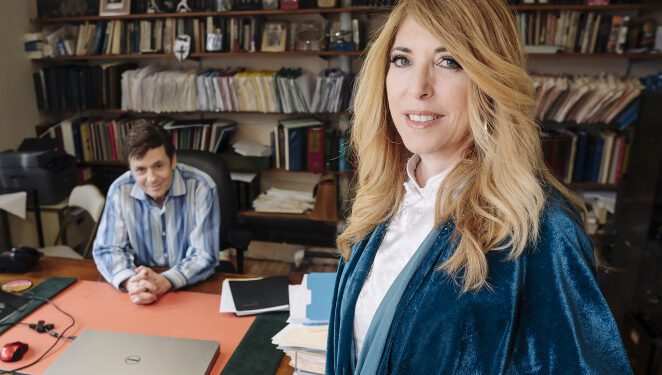Bonnie Winston launched her matchmaking journey at just 16 years old. While enjoying a night out dancing with friends in a New York City club in 1979, she introduced one of her friends to a guy she had encountered earlier. Fast forward six years, and that same couple tied the knot. Winston informally continued this matchmaking endeavor for the next three decades, successfully connecting hundreds of pairs. In 2013, she formally established her business, aptly titled Bonnie Winston Matchmaker.
When her initial client, a woman from the entertainment sector, requested access to Winston’s database of potential matches, Winston replied, “I don’t work that way.” She elaborated, “Share your dating requirements, and I will seek him out.” Winston successfully found a match who met the woman’s specifications, providing her with six weeks of coaching during their courtship. A year later, they became engaged.
Impressed by Winston’s talent for connecting relationships, this client began referring celebrities in search of love to her service. “That’s how I transitioned into being a celebrity [matchmaker],” Winston explains, though she’s equally delighted to assist those without the glitz. Her slogan, “I find mates, not just dates,” emphasizes that she’s more than just a dating service; she identifies as a true matchmaker.
Winston’s matchmaking talents featured in The Marvelous Mrs. Maisel
One of Winston’s clients inquired if she could offer guidance to Marin Hinkle on portraying a matchmaker. Hinkle plays Rose Weissman, the matchmaker and mother to Miriam Maisel, on the series The Marvelous Mrs. Maisel.
Winston praises Hinkle for her outstanding performance as a matchmaker on the show, noting that Hinkle received an Emmy nomination in 2020 for her portrayal of Weissman.
“She really immersed herself in the role. She portrayed it exceptionally well,” Winston remarks. “And just like her character, I thrive as a collaborator.”
Alongside her matchmaking prowess, Winston has a keen ability to identify traits that wouldn’t contribute to a successful partnership. Here, she outlines her key relationship red flags to be vigilant of while dating.
9 relationship red flags
1. Your family and friends disapprove of your partner.
“I believe everyone possesses intuition,” Winston asserts. She explains that if those close to you express aversion to your partner, it signals a red flag. “When you’re physical with someone, your intuition often goes out the window,” she adds.
Since you may be viewing the relationship through rose-colored glasses, it’s crucial to value the opinions of those who truly know you. However, if only one friend or family member disapproves, there’s less cause for concern. It’s when multiple people voice their concerns that the relationship warrants a closer inspection.
2. A pattern of falling in love too quickly is alarming.
If someone has a history of multiple marriages in rapid succession, that could be troublesome. “They’ve been married three times and claim, ‘Well, the first was just a trial. And the third only wanted my money and took no responsibility.’ That’s a red flag,” Winston notes.
3. Lack of communication is concerning.
Winston advises caution when someone struggles to articulate their emotions and communicate effectively. “If they never express those three essential words, ‘I love you’, and fail to engage in conversation, that’s a serious red flag,” she explains.
4. Self-centeredness is a significant red flag.
If your partner demonstrates selfishness and fails to inquire about your life, that’s a “huge red flag,” according to Winston. “When someone shows more interest in talking about themselves rather than asking about you,” it’s a cause for worry.
Winston elaborates that with time, you might find yourself saying, “‘Oh, wow, that person was such a narcissist,’” before realizing that “they never inquired about you because they truly don’t care about anything other than themselves.”
5. Frequent travel without communication raises concerns.
Your partner may have to travel frequently for their job, but modern technology makes staying connected simple. “A red flag is when they travel often but fail to maintain communication,” Winston says. She emphasizes that even busy individuals can send a quick text to check in. “There must be a balance,” she insists.
6. Inconsistency in communication is alarming.
If the person you’re dating goes silent during the week, that could indicate an issue. “If someone only shows up at your place before going to work with little contact in between, that’s a red flag,” Winston claims, noting that consistency and regular contact with your partner are crucial.
7. Distrust is a major red flag.
If your partner exhibits persistent distrust towards you, that should raise alarms. “If they’re always questioning your actions, that’s a pattern that likely won’t change,” Winston asserts. She emphasizes that possessiveness is unhealthy, and mutual trust is essential for a healthy relationship.
8. Your partner is reluctant to let you into their life.
If you’re making an effort to share your life with your partner and they aren’t reciprocating, that’s worrisome. Consider if you’ve met any of their friends or family. If not, you have reason to question their motivations. “When you’re sharing your world, and they haven’t allowed you into theirs, that’s a red flag,” Winston clarifies.
9. Being older and never having been in a relationship could be troubling.
Though exceptions exist, it’s generally a cause for caution if someone older hasn’t experienced relationships. Winston recalls a 65-year-old client fitting this description. Individuals who lack relationship experience often have unrealistic expectations. “I have a client who seeks a ‘unicorn’, which simply doesn’t exist,” Winston explains.
Winston’s advice on facing dating hurdles
If her clients encounter difficulties in their dating lives, Winston provides coaching and remains “on-call” for assistance. “My availability is akin to a clergy member’s. People reach out to me via calls and texts even after I’ve just finished dinner,” she shares.
Her approach is tailored to each client, and if she suspects they may need additional support, she’s not hesitant to refer them to counseling. Nonetheless, she remains committed to helping people find love.
“We’re striving. We maintain hope,” she concludes.


